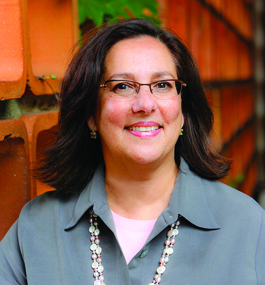Nurturing Moms Hold the Key to Healthy Lifestyles

Photo by Mike Lovett
Margie Lachman
A mother’s love is a force of nature — and a force of nurture. New research suggests that in poor families, the stuff of everyday mothering — soothing skinned knees, singing lullabies, providing a sense of security — offers a payback in better health for her offspring many decades after they’ve left the nest.
Mothers of all socioeconomic backgrounds from around the world might not be the least bit surprised by this discovery. “Perhaps it’s a combination of teaching effective strategies to cope with stress, instilling the belief in their children that they have some control over their destiny and promoting a healthy lifestyle, that protects against health problems,” says Margie Lachman, the Minnie and Harold Fierman Professor of Psychology and one of the study’s authors. Interestingly, paternal nurturing was found to have no such effect on health later in life, which could be more a reflection of traditional parenting roles than anything else, Lachman believes.
The study, published in the journal Psychological Science, sought to examine whether parental nurturing could mitigate the effects of childhood poverty. Scientists have known for a long time that economically disadvantaged children suffer higher rates of chronic illness in adulthood than those who are more economically secure. Lachman says that the stresses of a deprived childhood can leave a biological residue that shows up in midlife, in symptoms of metabolic syndrome — a precursor to Type 2 diabetes, stroke and cardiovascular disease.
But a sizable minority of poor kids, those with loving mothers, beat the odds, staying healthy long into adulthood. Lachman says the next step is to figure out why. “We want to understand what it is about having a nurturing mother that allows some individuals to escape the vulnerabilities of having low socioeconomic status and wind up healthier than their counterparts,” she explains.
The research is part of an enormous longitudinal study called Midlife in the United States (MIDUS) that is providing a treasure trove of information about midlife development. As part of the MIDUS project, this study followed 1,205 people for more than a decade. Researchers asked study participants questions like how much did your mother understand your problems and worries, and how much time and attention did she give you when you needed it? Indicators of health were assessed in an overnight visit to a research clinic.
“The fact that we can see these long-term effects from childhood as they extend into midlife is pretty dramatic,” says Lachman, underscoring the need for education that promotes good parenting, and a healthy diet and exercise starting early in life. It seems like a plan just about every mother can get behind.
— Susan Chaityn Lebovits
